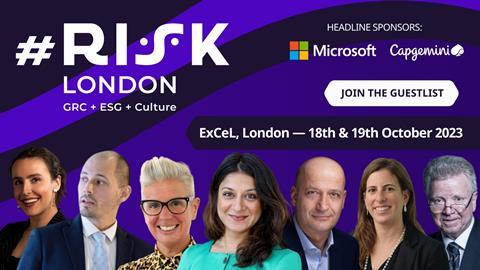A new report has unveiled a 70% surge in instances of greenwashing by global banks and financial institutions through the past year.

Environmental, social, and governance (ESG) data firm RepRisk recorded 148 cases of misleading sustainability claims, with European financial institutions contributing to the majority of these cases. The report highlights the alarming trend of banks, the primary financiers of decarbonisation efforts, being accused of greenwashing.
The practice refers to misleading investors and consumers with unsubstantiated pledges of sustainability; it has become more of a problem in recent times as organisations push to make savings, strengthen eco-credentials and enhance their public image.
Regulators are grappling to combat the trend, despite their eagerness to bolster consumer and investor trust, and enable more funds to be channelled into authentically sustainable investment opportunities. One fundamental hurdle, however, is the current lack of a universally agreed legal definition of greenwashing, which RepRisk understands to have happened when a company sends out inaccurate information about its work to help the environment.
Related Session:
Incident Response Planning: Developing a Playbook
Wednesday 18th October 2023, 15:00 - 16:00pm BST
Security Theatre
According to RepRisk and its data that stretches back over 15 years, half of these misleading communications either pertained to the use of fossil fuels or linked financial entities to gas and oil firms. The European Banking Federation has said many of these shortcomings may not be deliberate, but instead come as a result of increased industry scrutiny.
Interestingly, greenwashing isn’t an isolated issue. It often intertwines with “social washing,” where companies conceal underlying social problems to preserve their reputation and financial standing. As such, the rise in these cases not only hampers progress toward collective environmental goals but also erodes trust with consumers and investors.
Know the risks
Industry may be struggling to define clear boundaries, but business leaders and regulatory bodies – including the European Union – are working towards a shared understanding of greenwashing.
Amid this escalating concern, the spotlight falls upon all organisations to prioritise transparency and ethical practices so that we make genuine progress towards a more sustainable future.
The issues take centre stage at #RISK London, where experts discuss how companies can embrace ESG, meet evolving compliance standards and make a real difference to the world we live in.
Don’t miss the following exclusive sessions:
Climate risk and adaptation: The role of business in delivering resilience
Wednesday 18th October 2023, 14:00 - 15:00pm BST
ESG, Workplace & People Theatre
Businesses are constantly faced by a range of climate impacts from heavy rainfall, surface water flooding and high temperatures, to water scarcity and coastal flooding.
These impacts create a chain of risks, such as disruption to supply chains and distribution networks, damage to business sites and reduced productivity. Business decisions can also add to this by locking in increased exposure and vulnerability.
This session considers the key climate risks that businesses are exposed to in the UK and the role of business in delivering a climate resilient UK.
Sustainable Business Practices: Balancing Profit with Environmental Responsibility
Thursday 19th October 2023, 10:00 - 11:00am BST
ESG, Workplace & People Theatre
Over the past 20 years, the idea of corporate sustainability has become part of mainstream business discourse.
It’s now clear that a good ESG business practice helps companies connect with the public, leads and customers. By caring about people and the planet, companies differentiate themselves and stand out as leaders, ultimately leading to greater profitability. However, it is commitment.
Join this session to hear leading industry experts share their insight on how to balance profit with a sustainable business culture.




















No comments yet